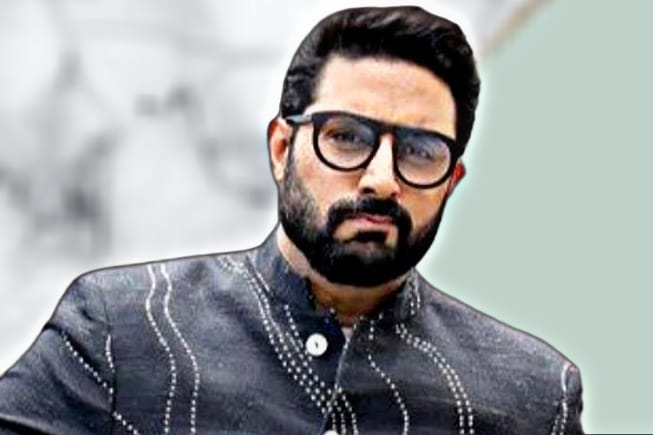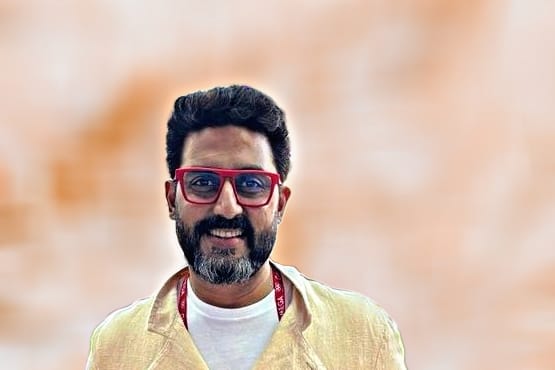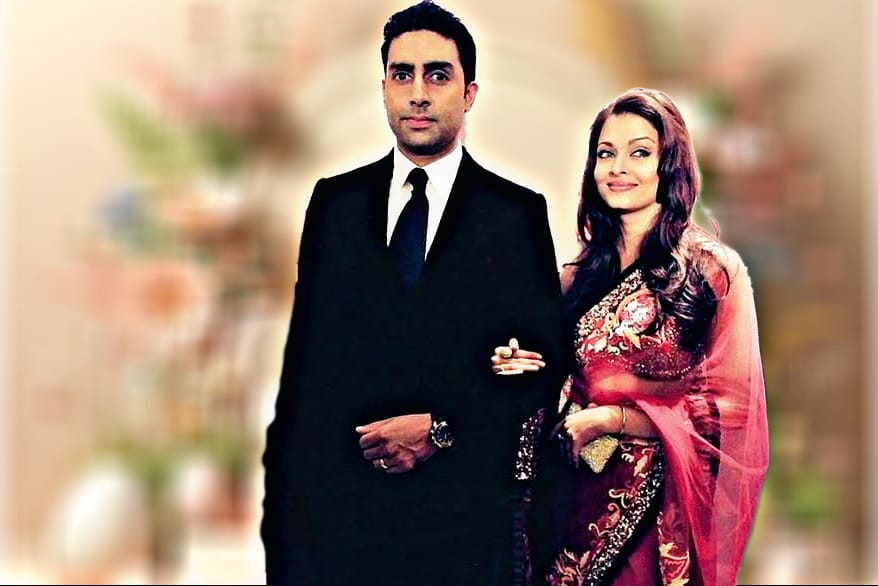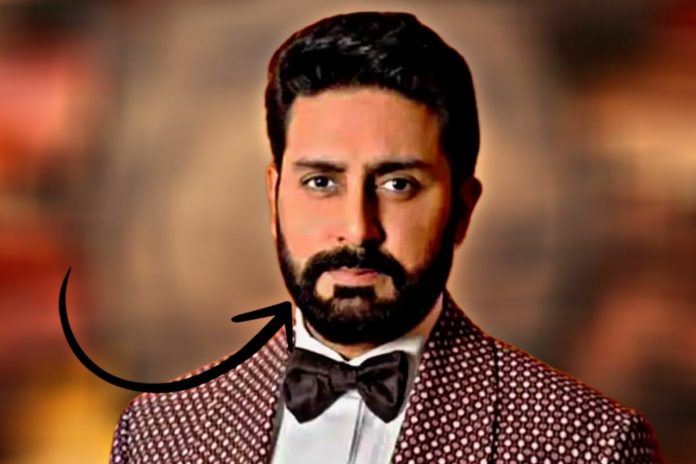Abhishek Bachchan, the son of Bollywood legend Amitabh Bachchan, is a name that resonates with millions of movie buffs and fans across India and around the world. His career, though often under the shadow of his illustrious father, has had its own unique trajectory, marked by both critical acclaim and occasional setbacks. Over the years, Abhishek has carved out a niche for himself in the competitive world of Bollywood with his distinctive blend of talent, charm, and versatility. This article takes a deep dive into the life, career, and legacy of Abhishek Bachchan, exploring his journey from his early days in the industry to his recent successes and personal milestones.
Early Life and Family Background

Abhishek Bachchan was born on February 5, 1976, in Mumbai, India, to Bollywood’s most iconic couple, Amitabh Bachchan and Jaya Bachchan. As the son of two legendary figures in the Indian film industry, Abhishek was thrust into the spotlight from an early age. Growing up in a family that had been the epitome of success in the entertainment industry, there were naturally high expectations surrounding him. However, Abhishek’s parents ensured that he led a relatively grounded childhood despite their global fame.
Abhishek attended the prestigious Jamnabai Narsee School in Mumbai and later pursued his education at the Aiglon College in Switzerland. From a young age, it was clear that he had a keen interest in acting, but before pursuing his passion for cinema, Abhishek briefly considered a career in sports. He played football at the youth level and even had the opportunity to play at the state level.
However, his love for cinema eventually won out, and Abhishek made his film debut at the age of 24.
Debut and Early Struggles
Abhishek Bachchan made his acting debut in 2000 with the film Refugee, directed by J.P. Dutta. While the film was not a major box office hit, Abhishek’s performance garnered attention for his earnestness and sincerity. His co-star in the film was Kareena Kapoor, and although the film did not set the box office on fire, it was a noteworthy beginning for the actor.
Despite this modest start, Abhishek faced several challenges in the initial years of his career. His subsequent films, including Tera Jadoo Chal Gaya (2000), Dhai Akshar Prem Ke (2000), and Sharaabi (2002), were not successful, and Abhishek found himself struggling to find a foothold in the industry. These years were tough for the actor as he battled against the perception that he was merely riding on the coattails of his father’s fame.
However, Abhishek remained resolute. He took on diverse roles in films like Boys (2003), Bunty Aur Babli (2005), and Sarkar (2005), showcasing his range and proving that he was more than just Amitabh Bachchan’s son.
Rise to Stardom: The Success Years

2005 marked a turning point in Abhishek Bachchan’s career. His performances in Bunty Aur Babli, where he played the lovable con artist opposite Rani Mukerji, and Sarkar, where he portrayed a menacing political figure, helped him establish himself as a versatile actor.
Bunty Aur Babli (2005)
Directed by Shaad Ali, Bunty Aur Babli was a commercial success and cemented Abhishek Bachchan’s status as a rising star in Bollywood. His role as a small-town man who becomes a notorious con artist, alongside Rani Mukerji’s portrayal of his partner-in-crime, was a refreshing departure from his earlier serious roles. The film’s success was accompanied by the iconic song Kajra Re, which became a chart-topping hit and further solidified Abhishek’s popularity.
Sarkar (2005)
That same year, Abhishek starred in Ram Gopal Varma’s Sarkar, a political drama loosely inspired by the life of underworld don-turned-politician Bal Thackeray. Playing the role of Shankar Nagre, a man who gets pulled into the world of politics due to his father’s legacy, Abhishek earned widespread acclaim for his intense and measured performance. The film, also starring Amitabh Bachchan in the titular role, proved to be a game-changer for Abhishek’s career, as he demonstrated his acting chops in a more serious and nuanced role.
Kabhi Alvida Naa Kehna (2006)
Abhishek Bachchan’s acting journey continued to grow with the release of Kabhi Alvida Naa Kehna in 2006, directed by Karan Johar. The film, which explored complex themes of infidelity, love, and marital conflict, featured a stellar ensemble cast that included Shah Rukh Khan, Amitabh Bachchan, and Rani Mukerji. Abhishek’s portrayal of a man caught in a turbulent marriage was praised for its emotional depth and maturity. Although the film was divisive, Abhishek’s performance stood out as one of the strongest elements.
Dhoom 2 (2006) and Dhoom 3 (2013)
One of the most defining franchises of Abhishek Bachchan’s career is the Dhoom series. Starting with Dhoom (2004), followed by Dhoom 2 (2006) and Dhoom 3 (2013), these films became massive blockbusters. Abhishek’s role as police officer Jai Dixit, chasing down stylish criminals in high-octane action sequences, became one of his most beloved portrayals. His camaraderie with co-star Uday Chopra, who played his sidekick, added a fun and lighthearted element to the series.
Dhoom 2 was a significant milestone in Abhishek’s career, as it was not only a commercial success but also showcased his ability to handle action-packed roles. His portrayal of Jai Dixit was a refreshing change from his previous roles, and the film’s success cemented his place in the action genre.
Guru (2007)
Another landmark in Abhishek’s career came with the release of Guru (2007), directed by Mani Ratnam. Abhishek Bachchan’s portrayal of a self-made billionaire, based loosely on the life of industrialist Dhirubhai Ambani, was widely acclaimed. The film, which explored the rise and fall of an ambitious man in the business world, became a critical and commercial success. Abhishek’s transformative performance earned him several awards and solidified his place among the top actors in Bollywood.
Personal Life: Abhishek Bachchan’s Marriage to Aishwarya Rai

One of the most talked-about aspects of Abhishek Bachchan’s life is his marriage to former Miss World and Bollywood actress Aishwarya Rai. The two met on the sets of Dhai Akshar Prem Ke (2000) but it was not until the filming of Guru (2007) that their relationship turned into a romance. They got engaged in early 2007 and tied the knot in a private ceremony on April 20, 2007.
Their marriage quickly became the subject of media frenzy, as the union between two of Bollywood’s biggest stars captured the imagination of millions. Together, they are one of the most iconic couples in Indian cinema. In 2011, the couple welcomed their daughter, Aaradhya Bachchan, into the world, which further endeared them to the public.
Later Career and Transition to Diverse Roles
While Abhishek Bachchan continued to enjoy success through films like Bol Bachchan (2012), Dhoom 3 (2013), and Happy New Year (2014), his career was marked by a few missteps. Films like Khelein Hum Jee Jaan Sey (2010), Hera Pheri 4 (2011), and Raavan (2010) did not perform well at the box office, and Abhishek’s career seemed to be at a crossroads.
However, Abhishek’s strength lies in his ability to bounce back. He began taking up more experimental roles, and by the mid-2010s, he began transitioning into more mature and diverse roles. His performances in films like Manmarziyaan (2018) and Ludo (2020) showcased his growth as an actor, and he received critical acclaim for his ability to handle complex and layered characters.
Manmarziyaan (2018)
In Manmarziyaan, directed by Anurag Kashyap, Abhishek played the role of a man caught in a tumultuous love triangle. The film explored the themes of love, betrayal, and self-discovery, and Abhishek’s portrayal of a flawed, yet endearing character was lauded by critics. This film marked a significant shift in his career, as he began to embrace more unconventional and nuanced roles.
Ludo (2020)
In 2020, Abhishek Bachchan appeared in the critically acclaimed ensemble film Ludo, directed by Anurag Basu. The film was a unique mix of dark comedy, drama, and romance, with Abhishek playing the role of a small-time criminal who undergoes a transformation over the course of the narrative. His performance in the film was widely praised for its depth and authenticity.
Abhishek Bachchan’s Legacy
As Abhishek Bachchan continues to navigate his career, he has undoubtedly established himself as one of the most versatile actors in the Indian film industry. Though his journey has been marked by ups and downs, his ability to evolve as an actor has kept him relevant in an industry that is constantly changing.
Abhishek has also ventured into production, launching his production house, AB Corp Ltd., and producing several successful films. His contributions to Indian cinema have not only solidified his place in Bollywood history but have also made him a respected figure in the industry.
His legacy is one of perseverance, hard work, and an unwavering passion for his craft. Whether playing a hero or an anti-hero, Abhishek Bachchan has always managed to leave a lasting impact on his audience. His journey from being “Amitabh Bachchan’s son” to becoming an actor in his own right is a testament to his talent, dedication, and commitment to his craft.
Conclusion
Abhishek Bachchan’s career, spanning over two decades, is a compelling story of growth, challenges, and success. While his path to stardom was not without its obstacles, he has proven time and again that talent, hard work, and resilience can overcome any adversity. As Abhishek continues to experiment with new genres and roles, there’s no doubt that he will continue to be a force to reckon with in the world of Indian cinema for years to come.
Whether it’s his iconic roles in the Dhoom series, his emotional performances in Guru and Kabhi Alvida Naa Kehna, or his transformative characters in Manmarziyaan and Ludo, Abhishek Bachchan’s contribution to Bollywood remains invaluable. His journey is not just one of success but also of self-discovery, and his future in the film industry looks brighter than ever.

